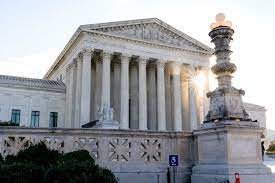Computer fraud and acts of abuse may not be used too much in the future. Verge said the Supreme Court had limited the scope of the CFA in a 6-3 verdict. The law does not include instances when someone misuses the network that is allowed to be accessed, according to the decision. They can still face other charges in several situations, but do not violate action.
The verdict came in a case involving former police officer Georgia Nathan van Buren. He was accused of violating the CFA by taking $ 5,000 to find a female number plate in the database, but his river stated that he did not violate the law because he had permission to access the database.
Judge Amy Coney Barrett, who expressed court opinion, argues that it allows a broader definition will have a serious impact. “Millions” people can face allegations of CFAA just to bend or break the rules like many of which are done every day, said justice.
The verdict can prevent prosecutors from using CFAA in contrial for computer crime, not to mention clarifying only access to someone. The Electronic Frontier Foundation also mentions victory decisions for researchers, investigative and other journalists who may need to investigate the network for security issues or important information. While EFF argues that the court must narrow further action to answer questions about the need to solve “barrier access technology],” it feels like the language is enough to offer protection for legitimate use.

